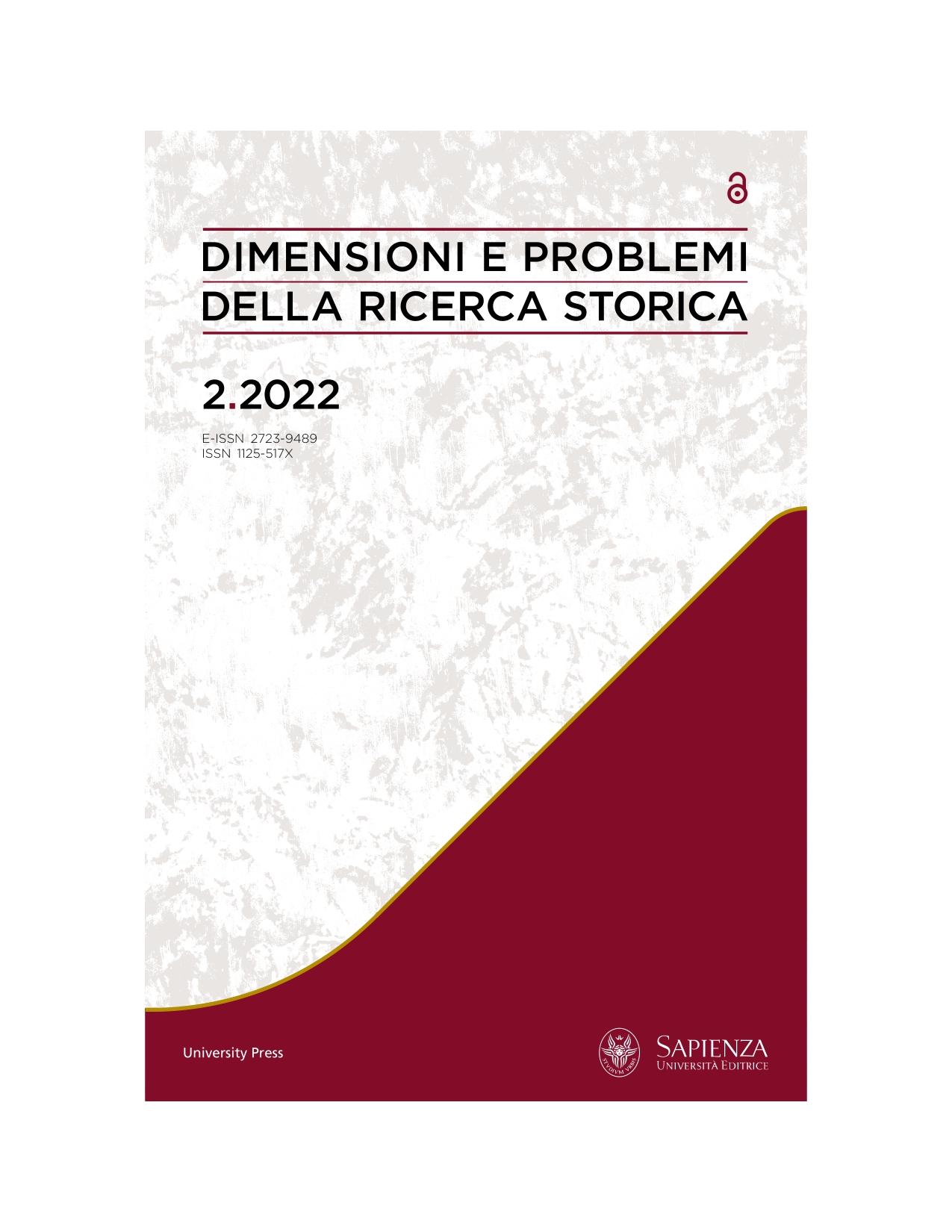A proposito di Rivoluzione militare, finanza pubblica e logistica
DOI:
https://doi.org/10.13133/2723-9489/1486Abstract
War and, more broadly, strategy were the core business of the majority of early modern states, absorbing the lion’s share of government spending. Throughout the early modern period, the relative importance of the activities connected to war and the military was definitely higher if compared to the industrial age, during which states grew, strengthened their power, and expanded the scope of their action, as public expenditure massively increased. All of which brought about a momentous transformation for late nineteenth- and twentieth-century states: on the one hand, military spending progressively increased in absolute terms in comparison with the past, but on the other hand – except for certain war periods – its share as a percentage of total public expenditure significantly shrank, while the nature of states, societies, and economies profoundly changed over time. In a nutshell, the modern nation state ‘does many more things’ within the context of a much more complex and sophisticated society (suffice it to mention the welfare state). In light of all this, it is not surprising that war and strategy heavily and variously impacted on early modern populations, also and above all from a financial and logistical point of view. This paper does not aim at presenting a detailed and comprehensive review of the topic, given its inherent complexity. More realistically, it sets out some basic general considerations, corroborated with specific case studies of particular interest. Among other things, attention is drawn to the plurality of actors involved in strategic affairs, who interacted according to a variety of patterns: states and their bureaucracies (generally growing, but far from having a monopoly on the legitimate use of force and on taxing power), together with a vast array of territorial bodies, local communities, ecclesiastical institutions, private entities and individuals of different social background, political influence, and economic condition. While discussing the far-reaching financial and fiscal implications of the military functions implemented by the states, the paper also sheds light on the key role played by logistics.
##submission.downloads##
Pubblicato
Fascicolo
Sezione
Licenza
Copyright (c) 2023 Mario Rizzo

Questo lavoro è fornito con la licenza Creative Commons Attribuzione - Non commerciale - Condividi allo stesso modo 4.0 Internazionale.


